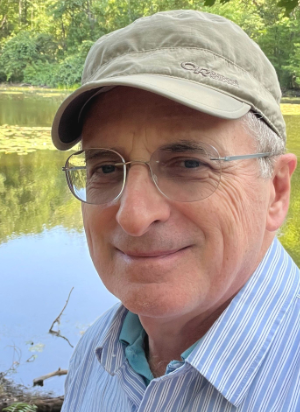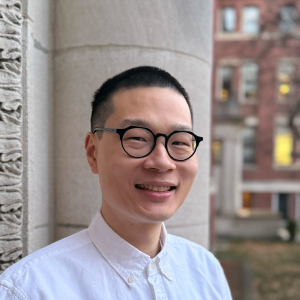Seminars
Latest Past Events
Discover Unknown Operating Regimes of the Fabry-Perot Optical Filters
MIT Lincoln Lab - Wood St 244 Wood Street, LexingtonMark Kuznetsov Excelitas TechnologiesFabry-Perot optical resonators have transverse and longitudinal spatial modes with narrow spectral resonances. Such resonances have been used for spectral selection in tunable Fabry-Perot filters. Multiple transverse modes cause unwanted signal distortion in such spectral selection. In analogy with single mode optical fibers, we have discovered and developed such filters with fundamentally single transverse mode operation for use in optical spectral analyzers. In another aspect, Fabry-Perot filters select a narrow spectral slice in transmission, while reflecting a broadband rejected signal. For tunable external cavity semiconductor laser operation, reflective spectral filter is required for sending a narrow selected tunable spectral slice as feedback to the semiconductor gain chip. We have discovered a new reflective operating regime of Fabry-Perot filters, where a narrow spectral slice is reflected by the filter. I will describe the theory of these novel Fabry-Perot filters, their implementation in tunable silicon Micro-Electro-Mechanical-System MEMS format, and commercial applications to spectral analyzers for fiber optical telecom signals and fast tunable semiconductor lasers for Swept-Source Optical Coherence Tomography SS-OCT in medical tissue imaging.Mark Kuznetsov received ScD degree from MIT, group of Erich Ippen and Hermann Haus, in the field of short pulse generation in semiconductor lasers. He then worked at AT&T Bell Laboratories, Crawford Hill, on tunable semiconductor lasers and other devices for wavelength-division-multiplexed WDM optical networks. Working at a small startup Micracor, with Aram Mooradian, he developed optically pumped semiconductor laser technology, OPSL, also known as VECSELs, vertical-external cavity surface-emitting lasers, which generate light in wavelengths by design from UV to IR with multi-watt class powers and high-quality beams, and are now widely deployed commercially, displacing legacy gas and solid-state lasers. At Raytheon, he has worked on passively Q-switched Nd:YAG microchip lasers. At MIT Lincoln Laboratory, he has worked on transmission aspects in WDM fiber optic telecom networks. For the past 25 years, he has worked at Axsun / Excelitas Technologies, developing Si micro-electro-mechanical system MEMS wavelength tunable technology, including Fabry-Perot tunable filters for channel monitoring in WDM optical networks and MEMS tunable semiconductor lasers, external cavity and VCSELs, for applications in spectroscopy and optical coherence tomography OCT in medical ophthalmic and cardiovascular imaging. Register for the event.
AIM Photonics Services: Wafers to Chips, SiPh in a 300 mm CMOS Foundry
MIT Lincoln Lab - Wood St 244 Wood Street, LexingtonDr. Lewis Carpenter AIM PhotonicsAIM Photonics' mission is to advance integrated photonic circuit manufacturing technology development in the United States. We provide access to state-of-the-art integrated photonics fabrication, packaging, and testing facilities and services to industry, academia and the United States government. We develop new and innovative technologies, processes, and materials within the integrated photonics sphere, addressing high-risk/high-reward challenges in photonics integrated circuit manufacturing technology. We strive to create an adaptive integrated photonic circuit workforce capable of meeting the integrated photonics industry’s needs. Within this talk we will present the AIM Photonics' latest work on silicon photonic multi-wafer runs, process design kits, electronic-photonic design automation, research and development.Dr. Carpenter has 15 years of research experience focused on the development of photonic, nonlinear optic, and quantum technology (QT) devices - from concept, simulation, and design to prototype and manufacture. He is currently the Photonics Development Manager, working at the American Institute for Manufacturing (AIM) Photonics. AIM Photonics is the federally funded home of cutting edge silicon photonic foundry services in a 300 mm, CMOS line. He is spearheading research in design, simulation, prototyping, and manufacturing of next-generation silicon photonic devices, with a focus on quantum technology. His current research interests includes: avalanche photodiodes, photodiodes, modulation in aluminium nitride, frequency conversion in thick silicon nitride, and passives in alumina. He was a key member of the team that developed zinc doped MgO:PPLN (periodically poled lithium niobate) ridge waveguides for Covesion while working at the University of Southampton. PPLN waveguides are a key piece of Quantum Technology for quantum computing/memories (atom/ion trapping) and quantum communications (single photon generation). The PPLN waveguides developed generate new wavelengths of light at a multi-watt level with >50 % device efficiencies. During device development Dr. Carpenter’s major contributions include waveguide design/modelling, cleanroom and ultra-precision machining fabrication process development, and nonlinear photonic characterization. Dr. Carpenter received a PhD in 2013 from Optoelectronics Research Centre (ORC) University of Southampton, under the supervision of Peter G.R. Smith. His research focused on creating ultra-smooth micron scale features for integrated optics. He pioneered ductile mode machining with ultra-precision dicing saws and micromilling techniques and used these ductile mode machining techniques to create a variety of photonic devices - such as micro optomechanical systems, physical/biological/refractive index sensors, and amplitude/phase modulators - in a plethora of integrated material systems using silica, lithium niobate, silicon, gallium arsenide, germanium, chalcogenide, etc. He received a first class Bachelors in Electrical Engineering from the University of Southampton (2009) and won the National Grid award for the highest awarded dissertation mark.Register for this event.
Unlocking Broadband LWIR Laser Combs with Ultimate Dispersion Compensation
MIT Lincoln Lab 3 Forbes Road, LexingtonDr. Tianyi Zeng Harvard University School of Engineering and Applied SciencesBroadband frequency combs in the long-wavelength infrared (LWIR, 8–13 µm) hold great promise for high-precision sensing and spectroscopy, but achieving comb operation in this regime has been limited by strong material dispersion and fabrication constraints. This talk presents recent advances enabling an on-chip LWIR quantum-cascade laser (QCL) frequency comb with unprecedented bandwidth through precise dispersion engineering. I will first introduce the background in dual-comb spectroscopy, fundamental comb theory, and traditional dispersion characterization techniques. Building on this foundation, I will describe a new dispersion-characterization approach that quantifies bias-dependent group-velocity dispersion in LWIR QCLs and the subsequent implementation of an air-dielectric double-chirped mirror (DCM) providing tailored broadband compensation. I will then delve into the key fabrication challenges—deep subwavelength etching, high-aspect-ratio structures, and thermal management—that were overcome to realize the integrated device, which achieves record-broadband, coherent comb emission near 9.6 µm with a single narrow beatnote. These results highlight a powerful platform for dispersion-controlled LWIR photonics and chart a path toward octave-spanning, chip-scale combs across the mid- to far-infrared.Tianyi Zeng is a postdoctoral researcher at Harvard University’s School of Engineering & Applied Sciences, working with Prof. Kiyoul Yang on integrated nonlinear laser devices. His research focuses on developing high-performance silicon nitride and aluminum oxide nanophotonic platforms for ultrafast and nonlinear photonics, achieving record-low optical losses and broadband gain. He received his Ph.D. in Electrical Engineering from MIT under Prof. Qing Hu, where he demonstrated ultrabroadband long-wave infrared quantum cascade laser frequency combs with integrated dispersion compensation. Tianyi’s work bridges semiconductor nanofabrication, III-V and solid-state lasers, and nonlinear integrated photonics. He is also co-founding a startup to commercialize an integrated chip-scale optical circuit switch and amplifier—technology aimed at enabling high-speed, energy-efficient AI data-centers.The registration for this event is closed.



